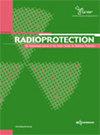柏西的圆桌项目:福岛事故后东京郊区的消费者和农民之间的对话
IF 1.8
4区 医学
Q4 ENVIRONMENTAL SCIENCES
引用次数: 6
摘要
本文描述了福岛第一核电站事故发生后,在东京郊区的辐射热点柏华,作者在圆桌项目中发挥核心作用的各利益相关者之间的对话实践。柏西县既是一个宿舍区,也是一些蔬菜的重要产区,但它的居民来自日本不同地区,在东京工作,并没有特别依恋该地区,因此柏西县的对话和利益相关者的参与面临着与福岛县不同的困难。在此背景下,经过数月的慎重讨论,圆桌会议决定了独立的标准值和一项测量个体农民蔬菜和农田土壤的协议。由于这一优化过程,参加圆桌会议的农民将辐射防护作为其普通营销活动的延伸。本文考察了日本“吃和支持”运动的成功与失败,并结合Kashiwa的经验,探讨了辐射防护营销理念的意义,以及从生产者和消费者的小圈子中延伸信任的策略。本文章由计算机程序翻译,如有差异,请以英文原文为准。
The Round-Table project in Kashiwa: a dialogue to reconcile consumers and farmers in the Tokyo suburbs after the Fukushima accident
This paper describes the practice of dialogue between various stakeholders at the Round-Table project in Kashiwa, a radiation hotspot in the Tokyo suburbs after the Fukushima Daiichi Nuclear Power Plant accident, where the author played a central role. Kashiwa is both a dormitory town and an important production area for some vegetables, but its residents coming from different regions of Japan and working in Tokyo are not particularly attached to the area, so the dialogue and stakeholder involvement in Kashiwa faced different difficulties than those in Fukushima Prefecture. In this context, after months of deliberate discussions, the Round-Table decided on independent standard value and a protocol for measuring individual farmer’s vegetables and farmland soil. As a result of this optimization process, the farmers who participated in the Round-Table became involved in radiation protection as an extension of their ordinary marketing activities. This paper examines the achievements and failures of the “Eat and Support” campaign in Japan, and discusses the significance of the marketing concept in radiation protection and the strategy of extending trust from a small circle of producers and customers, based on the experience of Kashiwa.
求助全文
通过发布文献求助,成功后即可免费获取论文全文。
去求助
来源期刊

Radioprotection
ENVIRONMENTAL SCIENCES-PUBLIC, ENVIRONMENTAL & OCCUPATIONAL HEALTH
CiteScore
3.30
自引率
54.50%
发文量
35
审稿时长
>12 weeks
期刊介绍:
Radioprotection publishes articles on all aspects of radiological protection, including non-ionising as well as ionising radiations. Fields of interest range from research, development and theory to operational matters, education and training. The very wide spectrum of its topics includes (theoretical and practical aspects): dosimetry, instrument development, specialized measuring techniques, epidemiology, biological effects (in vivo and in vitro) and risk and environmental impact assessments.
 求助内容:
求助内容: 应助结果提醒方式:
应助结果提醒方式:


